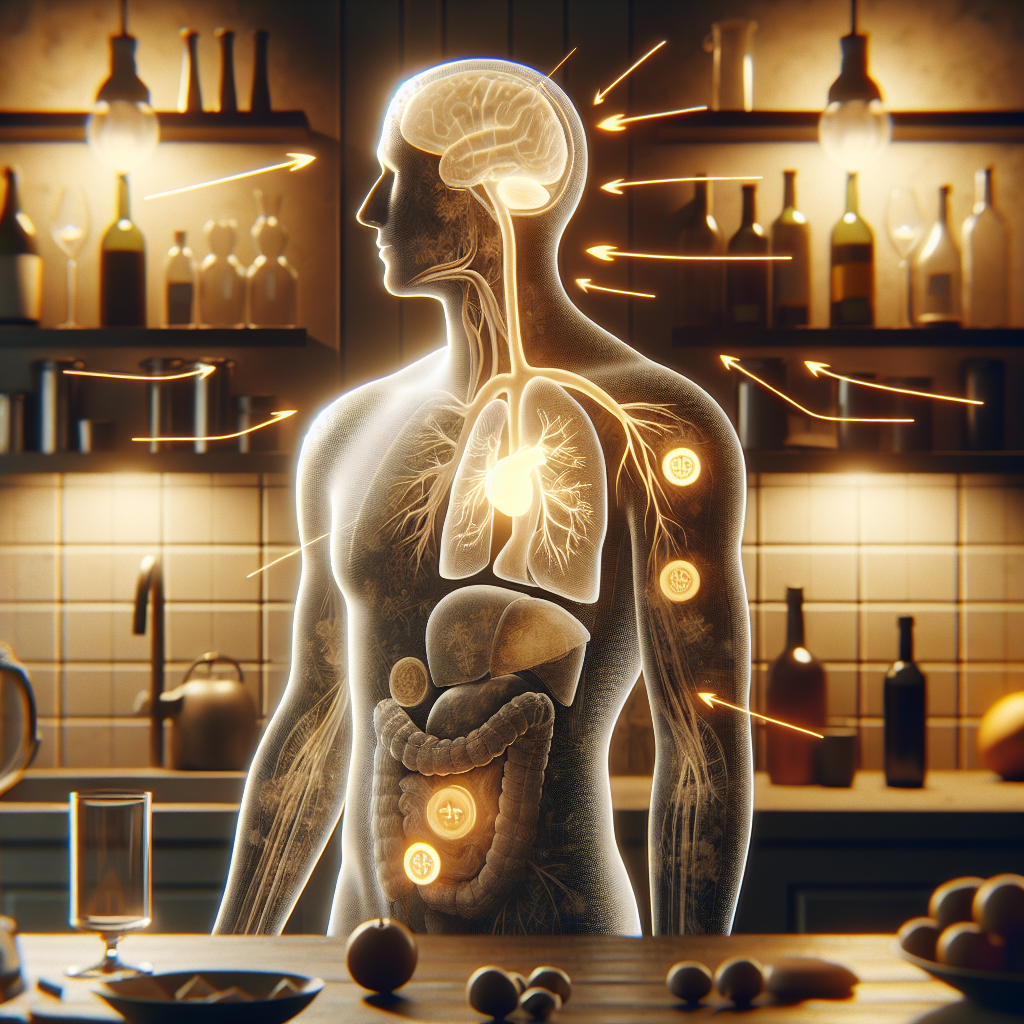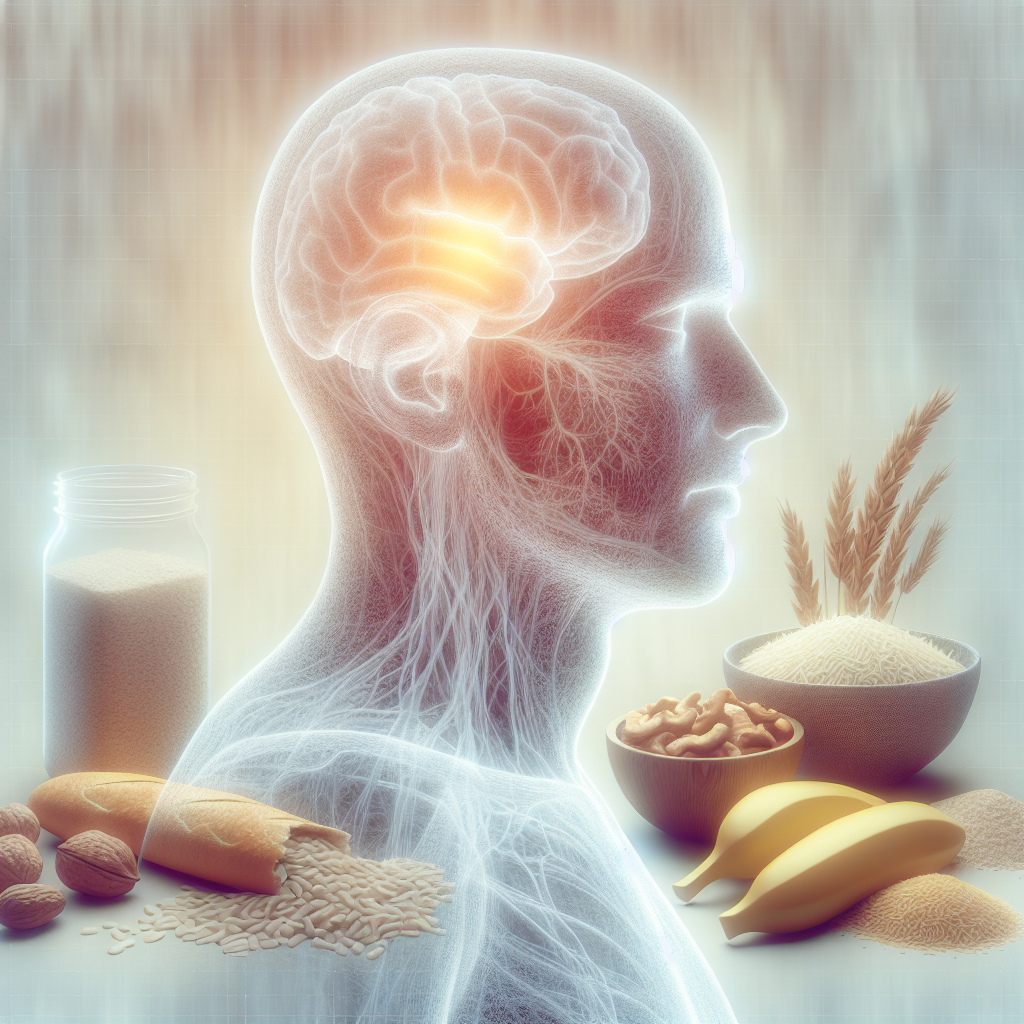B1 Deficiency Recovery: Your Path to Optimal Health
To truly embark on your b1 deficiency recovery, it's essential to understand what B1 deficiency is and how it affects your overall health. Vitamin B1, also known as Thiamine, plays a crucial role in converting carbohydrates into energy and supports proper nerve function. When the body lacks sufficient Thiamine, it can lead to serious health issues including fatigue, irritability, and impaired cognitive function.
Moreover, Thiamine deficiency can severely impact your metabolic processes. Symptoms may include:
- Fatigue: A general lack of energy can hinder daily activities.
- Neurological Issues: Symptoms like tingling, numbness, or altered sensations can occur.
- Cardiovascular Problems: Severe cases might lead to conditions such as wet beriberi, characterized by swelling and heart issues.
Individuals who consume alcohol heavily, like party-goers or those who enjoy social drinking, may be particularly susceptible to B1 deficiency. Alcohol can interfere with Thiamine absorption, exacerbating the deficiency. This is where our innovative hangover prevention patch comes into play, ensuring you replenish vital vitamins before a night of indulgence. Cure the Hangover before it happens! Visit boozebandage.com to explore how our patches can help you maintain optimal health while enjoying your favorite beverages.
Common Symptoms of B1 Deficiency

Recognizing the signs of B1 deficiency is essential for prompt intervention and recovery. The symptoms can vary considerably, depending on the severity of the deficiency and individual health factors. Common symptoms include:
- Fatigue and Weakness: A pervasive sense of tiredness that does not improve with rest can be one of the first indicators.
- Loss of Appetite: A noticeable decrease in hunger can lead to further nutritional deficiencies.
- Neurological Symptoms: These may manifest as tingling sensations, numbness in extremities, or difficulty with coordination and balance.
- Memory Problems: Cognitive impairments, including memory loss and confusion, are also linked to a lack of Thiamine.
- Emotional Changes: Individuals may experience mood swings, irritability, or even depression as a result of prolonged deficiency.
In more severe cases, B1 deficiency can lead to serious conditions such as Wernicke-Korsakoff syndrome, a severe neurological disorder primarily associated with chronic alcoholism. Recognizing these symptoms early can lead to effective recovery strategies and improve overall health.
Effective Recovery Strategies for B1 Deficiency
Addressing B1 deficiency effectively involves a multi-faceted approach that includes dietary adjustments, supplementation, and lifestyle changes. Here are some proven strategies to aid in recovery:
- Dietary Changes: Incorporating foods rich in Thiamine is crucial. Consider adding the following to your diet:
- Whole grains (brown rice, oats)
- Legumes (beans, lentils)
- Nuts and seeds
- Pork and other lean meats
- Fortified cereals
- Thiamine Supplements: For those unable to meet their needs through diet alone, Thiamine supplements can be beneficial. Always consult with a healthcare provider for appropriate dosage.
- Limit Alcohol Consumption: Since alcohol can interfere with the absorption of B1, reducing intake may help improve your body's ability to recover.
- Manage Stress: High stress can exacerbate deficiencies. Engage in relaxation techniques such as yoga, meditation, or deep-breathing exercises to promote overall well-being.
Implementing these strategies can significantly enhance your recovery journey and restore your body's vitamin levels. By prioritizing these changes, you can support your health holistically and effectively combat the symptoms of B1 deficiency.
Natural Sources of Vitamin B1

When seeking to boost your intake of Vitamin B1, also known as Thiamine, it's essential to recognize the various natural sources available. Incorporating these foods into your diet can help you maintain optimal health and support B1 deficiency recovery. Here are some of the best natural sources:
- Whole Grains: Foods like brown rice, oats, and whole wheat are excellent sources of Thiamine. They provide not just B1 but also other essential nutrients and fiber.
- Pork: This meat is one of the richest sources of Vitamin B1. Including lean cuts of pork in your meals can significantly contribute to your daily Thiamine intake.
- Legumes: Beans and lentils are not only high in protein but also packed with Thiamine, making them a great addition to vegetarian and vegan diets.
- Nuts and Seeds: Almonds, sunflower seeds, and flaxseeds are tasty snacks that also offer a good amount of B1.
- Fortified Foods: Many cereals and grain products are fortified with Thiamine, making them an easy source of this essential vitamin.
By incorporating these natural sources of Vitamin B1 into your daily diet, you can enhance your nutritional intake and support your body's recovery process. Embracing these foods not only helps in preventing deficiency but also contributes to overall wellness.
Supplementation and B1 Deficiency Recovery

For those struggling with B1 deficiency recovery, supplementation can be a crucial step towards restoring optimal health. While a balanced diet rich in natural sources of Vitamin B1 is ideal, certain circumstances may necessitate the use of supplements. Here are some important points to consider:
- Types of Supplements: Vitamin B1 supplements are available in various forms, including Thiamine hydrochloride and benfotiamine. The former is water-soluble, while the latter is a fat-soluble form that may offer better absorption and bioavailability.
- Dosage Recommendations: The recommended dietary allowance (RDA) for Thiamine varies based on age, gender, and lifestyle. For adults, the RDA typically ranges from 1.1 mg to 1.2 mg per day. However, individuals with specific health conditions or those who consume alcohol regularly may require higher doses.
- Consultation with Healthcare Providers: Before starting any supplementation, it is essential to consult with a healthcare provider. They can help determine the appropriate dosage and form of Vitamin B1 that best suits your individual needs and health status.
- Potential Side Effects: Generally, Vitamin B1 is considered safe with minimal side effects. However, excessive intake through supplements may lead to adverse effects. Monitoring your intake is key to avoiding complications.
Incorporating Vitamin B1 supplements can be an effective strategy in your journey towards B1 deficiency recovery. Coupled with a balanced diet, they can help replenish your body's stores of this vital nutrient, ensuring you feel your best.
The Importance of B1 for Overall Health

Understanding the role of Vitamin B1, also known as Thiamine, is crucial for maintaining overall health. This essential nutrient plays a pivotal role in various bodily functions, making its sufficient intake vital for everyone. Here are some key points highlighting the importance of B1:
- Energy Production: Thiamine is integral in converting carbohydrates into energy. It aids in the metabolism of glucose, which is the primary energy source for our cells. A deficiency can lead to fatigue and lethargy.
- Neurological Function: B1 is essential for maintaining the health of the nervous system. It supports nerve signaling and communication, which is crucial for cognitive function and emotional well-being. Low levels of Thiamine can contribute to neurological disorders.
- Cardiovascular Health: Adequate Thiamine levels are important for heart function. It helps in the production of acetylcholine, a neurotransmitter that regulates heart rate and blood vessel contractions.
- Digestive Health: Thiamine contributes to the health of the digestive system by supporting proper appetite and digestion. It aids in the synthesis of hydrochloric acid, which is necessary for breaking down food.
Given the numerous benefits of Vitamin B1, it is evident that ensuring adequate intake is essential for overall well-being. For those who consume alcohol, incorporating a hangover prevention solution like our Booze Bandage can help maintain your B1 levels and keep you feeling great the next day. Cure the Hangover before it happens!
